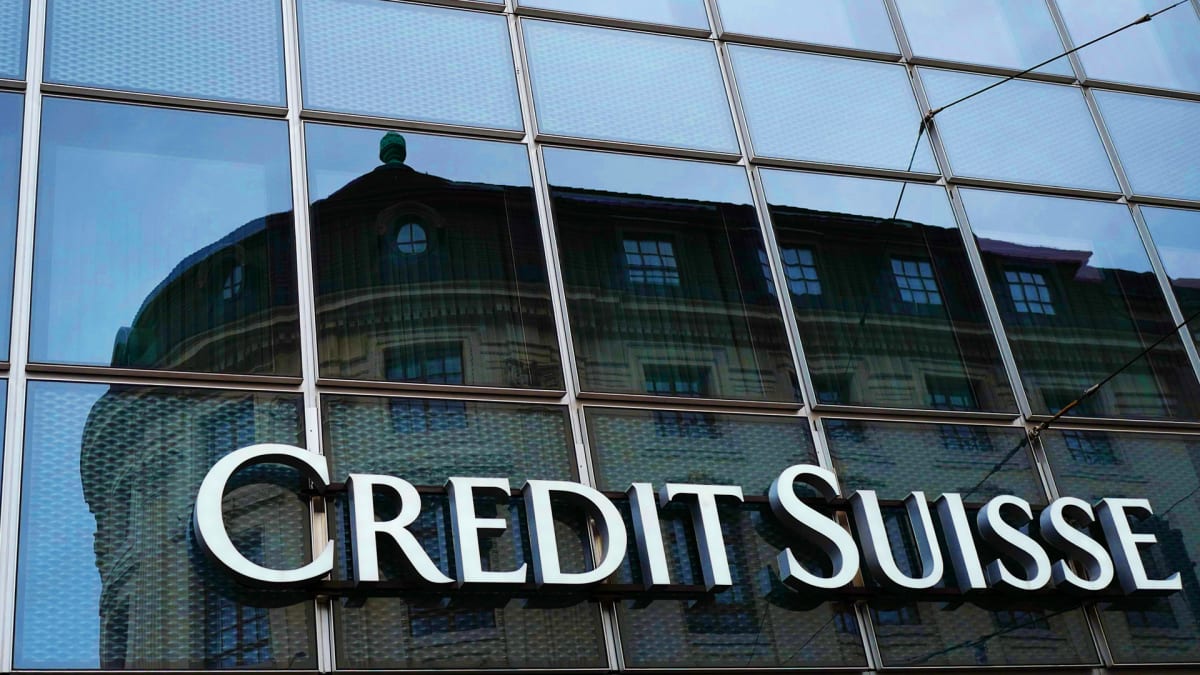
It's a sad end for a giant.
Credit Suisse, a bank born 167 years ago and which has withstood numerous financial crises, has finally given up, struck down by an avalanche of scandals.
The firm is a universal bank, which offers traditional services and products to consumers, mainly in Switzerland. The establishment is known globally for its investment banking activities -- trading, mergers and acquisitions, issuance and underwriting of securities, etc. -- and wealth management operations.
In recent years, Credit Suisse had never managed to avoid problems. It was implicated in almost every scandal affecting the global banking industry.
In 2008, the global financial system was on the verge of collapse, shaken by subprime mortgages. At the time, the interdependence of the big banks became apparent. They were all impacted, but while Lehman Brothers went bankrupt, Credit Suisse assessed the cost of its losses at 10 billion Swiss francs. This amount is small, compared to its rivals, in particular UBS, whose losses amounted to 40 billion Swiss francs.
A Decade of Scandals
UBS was bailed out by the Swiss government, while Credit Suisse avoided such humiliation by finding Qatari investors to recapitalize.
A year later, Credit Suisse was fined $536 million for circumventing US sanctions against Iran and Sudan between 1995 and 2006. For the next five years, the bank managed to avoid making negative headlines.
But in 2014, Credit Suisse pleaded guilty to helping wealthy Americans evade taxes. The bank paid a $2.6 billion fine but avoided prosecution. The same year, the name of the firm was also included in the list of banks accused of having manipulated the Libor rate.
Two years later, the "Tuna bonds" affair broke out in Mozambique. Credit Suisse employees were accused of making secret loans worth $2 billion for which they allegedly took bribes.
The bank paid $475 million in fines to US and UK authorities in 2021. But there are still ongoing disputes. In 2017, Credit Suisse was fined $5.28 billion for its role in subprime lending in the United States.
A year later, FINMA, the Swiss banking regulator, accused the bank of failing to comply with due diligence obligations in the context of the fight against money laundering linked to Petrobras, PDVSA and FIFA.
The scandals were also internal. In 2019, it was discovered that Credit Suisse had several of its employees and ex-employees followed. This scandal led to the departure of CEO Tidjane Thiam, five years after his arrival.
And then, in 2021, there were the two cases that would ultimately bring down the bank. The bank played too much with fire. This time, it ended up getting burned.
The first was the bankruptcy of Greensill. Founded in 2011, the British company was a supply chain and accounts receivables lender that specialized in lending money to companies so that they could pay their suppliers. It then packaged the debts of these companies into financial securities which it would resell to investors.
The house of cards began to crumble when these investors, including Credit Suisse, had doubts about the real value of the debts and abandoned Greensill, which then filed for bankruptcy in March 2021.
A Descent into Hell
Credit Suisse (CSGKF) had invested $10 billion of its clients' funds in Greensill products.
The second scandal in the spring of 2021 involved family office Archegos Capital Management. Bill Hwang, a South Korean investor based in New York who founded hedge fund Tiger Asia Management in 2001, suffered a major setback in 2012 because of insider trading allegations. Hwang gradually revived Tiger Asia which became Archegos.
While his company would manage $10 billion, Hwang convinced banks, including Credit Suisse, to lend him $30 billion to invest more. In 2020, he invested heavily in ViacomCBS (VIACA), which saw the value of its shares soar.
At the beginning of 2021, Credit Suisse asked Archegos to deposit funds. Hwang promised to reduce the risks. But in March 2021, ViacomCBS shares crashed and the banks asked Archegos to cover the losses, which it was no longer able to do. As a result, Hwang's company went bankrupt.
These scandals caused losses in the billions and a stock market rout for Credit Suisse. The price of Credit Suisse shares was around 11.45 Swiss francs at the start of January 2021. Just over two years later, Credit Suisse shares are trading at 1.86 Swiss francs. That's an 84% drop.
The market capitalization of a bank that served the largest fortunes in the world, participated in the largest financial transactions and was a household name in Switzerland, is now worth only 7.33 billion Swiss francs ($8 billion).
A veritable descent into hell for a bank whose market value had risen to an all-time high of $87.76 billion on April 29, 2007.
On March 19, the Swiss authorities announced that Credit Suisse was to be acquired by UBS for just over $3 billion, a modest price that is not even half of its market value.
A sad end for an establishment which employed 50,000 people at the end of 2022.







